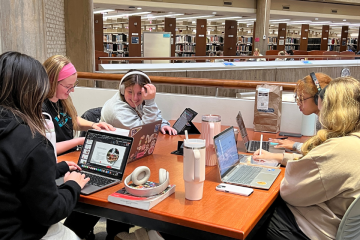Potential for Growth

Widener University has begun a partnership with nonprofit land conservation organization Natural Lands to plan for the future of Taylor Arboretum at Widener University.
With support from a grant by the William Penn Foundation, the university is collaborating with Natural Lands to develop a master plan and stewardship plan for the sustainable management of the arboretum. The effort seeks to transform the site into an integral research environment for Widener and affiliated institutions, and protect it as an important resource for public enjoyment.
The university acquired the arboretum, a 30-acre preserve of plantings and natural lands located about a mile north of Widener in Nether Providence Township, in 2016. Sections of the property had fallen into disuse and invasive plants were beginning to degrade native vegetation. A riparian buffer along Ridley Creek also needed attention.
A Widener advisory committee made up of professors in the science division and in education, led by Professor Stephen R. Madigosky, chair of the Department of Environmental Science and Sustainability, are meeting with representatives of Natural Lands periodically over 18 months to work on the plan. Karen Clancy, landscape planning project manager at Natural Lands, is assisting the university. Natural Lands is dedicated to saving open space, caring for nature, and connecting people to the outdoors in eastern Pennsylvania and southern New Jersey.
“This is a unique opportunity for Widener faculty to recommend changes that will strategically set in motion measures that can direct how this property will look over the next several decades and beyond. The assistance and expertise of Natural Lands is a welcome addition to the process of helping develop a carefully crafted master plan for the arboretum,” Madigosky said.
“The arboretum is an academic asset for Widener, as it provides a living learning laboratory for our students,” he added. “It represents an abundance of research opportunities and helps our faculty bring lessons from the classroom to life outdoors. At the same time, it is a public treasure we want to ensure will be available for people in Chester and the surrounding communities to enjoy for decades.”
Clancy said the arboretum is unique because of its location in an urban area.
“The decisions that leaders make now about the existing landscape will affect the way the property looks and functions in 30, 50, or even 100 years,” she said. “Natural Lands is pleased to work with Widener on a master plan to maximize the academic and public benefit of the property, with a commitment to its sustainability. We commend the university for taking these steps to protect and enhance this public treasure.”



